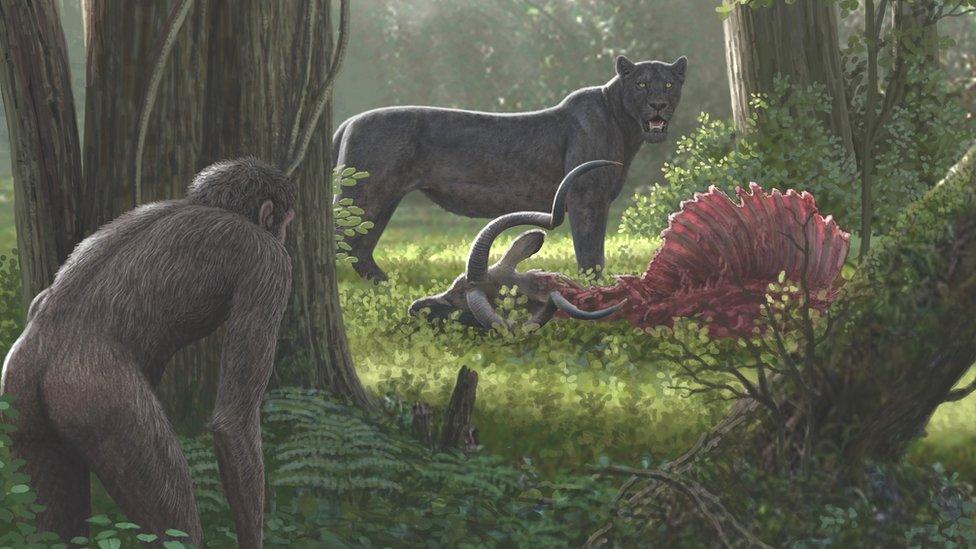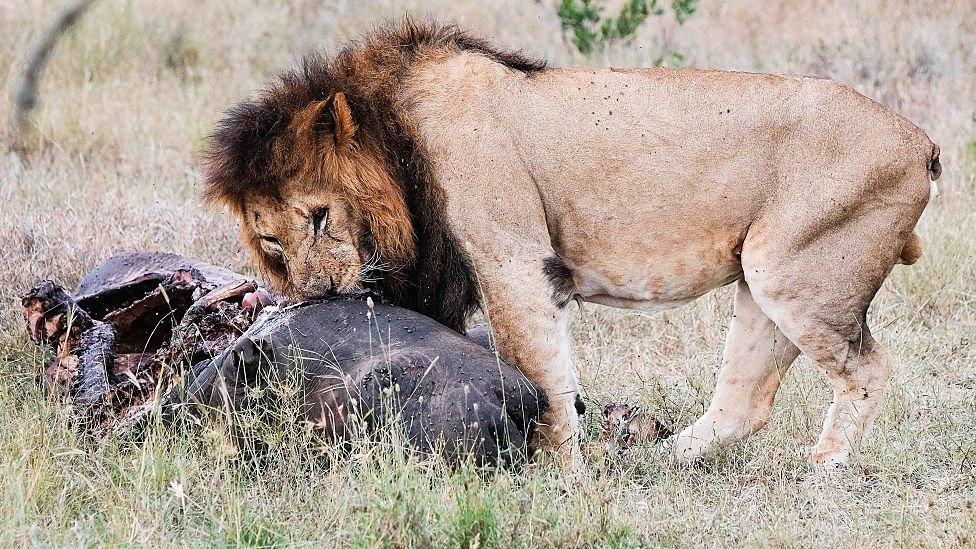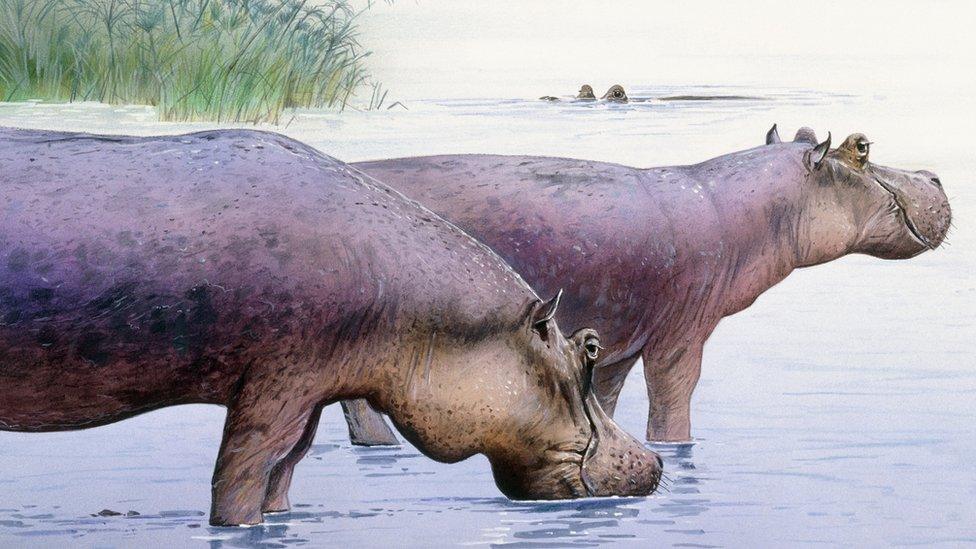Human impact on nature 'dates back millions of years'
- Published

Early human ancestors could have stolen food from other animals
The impact of humans on nature has been far greater and longer-lasting than we could ever imagine, according to scientists.
Early human ancestors living millions of years ago may have triggered extinctions, even before our species evolved, a study suggests.
A decline in large mammals seen in Eastern Africa may have been due to early humans, researchers propose.
Extinction rates started to increase from around four million years ago.
This coincides with the period when ancient human populations were living in the area, as judged by fossil evidence.
"We are now negatively impacting the world and the species that live in it more than ever before. But this does not mean that we used to live in true harmony with nature in the past," said study researcher, Dr Søren Faurby of the University of Gothenburg.
"We are extremely successful in monopolising resources today, and our results show that this may have also been the case with our ancestors."

A lion feasts on the carcass of a rhinoceros in Kenya
The researchers looked at extinction rates of large and small carnivores and how this correlated with environmental changes such as rainfall and temperature.
They also looked at changes in the brain size of human ancestors such as Australopithecus and Ardipithecus.
They found that extinction rates in large carnivores correlated with increased brain size of human ancestors and with vegetation changes, but not with precipitation or temperature changes.
They found the best explanation for carnivore extinction in East Africa was that these animals were in direct competition for food with our ancestors.
They think human ancestors may have stolen freshly-killed prey from the likes of sabre-toothed cats, depriving them of food.
"Our results suggest that substantial anthropogenic influence on biodiversity started millions of years earlier than currently assumed," the researchers reported in the journal Ecology Letters, external.
Co-researcher Alexandre Antonelli of the Royal Botanic Gardens, Kew, said the view that our ancestors had little impact on the animals around them is incorrect, as "the impact of our lineage on nature has been far greater and longer-lasting than we ever could ever imagine".
A landmark report last year warned that as many as one million species of animals and plants are threatened with extinction in the coming decades.
A more recent study found that the growth of cities, the clearing of forests for farming and the soaring demand for fish had significantly altered nearly three-quarters of the land and more than two-thirds of the oceans.
Follow Helen on Twitter, external.
- Published22 November 2018
